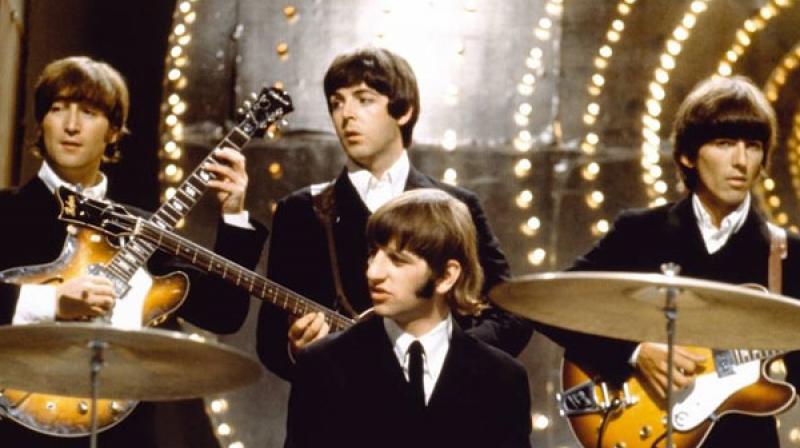Salt, pepper and the Beatles

One doesn’t have to be a music scholar to figure out the difference between a Vedic chant, which has a cadence, and a Gregorian chant, which doesn’t. But, as I learnt last week, you could do with some help in understanding the full scope of the phenomenon that was the Beatles. To learn that Indian classical music is mostly circular, somewhat like jazz, and not linear like its Western counterpart, you would, of course, need to sit at the feet of Ravi Shankar or perhaps Yehudi Menuhin. Or you could ask the Beatles. For keen ears, music is not a performance. It’s a way of perceiving the world. A senior journalist recalls with relish how in the middle of an interview, Vilayat Khan, the sitar wizard, stopped the conversation abruptly with the wave of his hand, and trained both his ears towards the window of his home in Kolkata. “Kya gandhaar lag rahi hai,” he smiled, ears locked to the koel’s song from a tree branch in the courtyard. A “gandhaar” would be equal to the Western note “mi” in the shared musical solfège. Ergo: to figure the note of a birdsong you need a guru. To be entranced by the bird’s song you just need to have an ear for music. Caesar was wary of Cassius who apparently had no ear for music. For Shakespeare it was a feature of villainy, a would-be killer, that he showed Cassius with interest neither in a birdsong nor in the lute. I wouldn’t go that far. Well-meaning people I know see music as a distraction from the serious business of life.
“Are there many Iranians here?” my mother wondered years ago as we crossed the Dubai creek on the abra boat. I thought it was a political query but her question came from the intonation of the azan she had just heard. Her interest in music was honed by the sozkhwani in Muharram. A solemn month for many Muslims, Muharram becomes more poignant with music. I learnt so much about ragas by simply conveying my mother’s requests to the knowledgeable sozkhwan in our ancestral kasbah of Mustafabad during the annual Muharram visits. Like sozkhwani in Muharram, which starts this week, music holds sway in nearly all other traditions of India’s religious tapestry. Be it the Brahminical bhajan or the Sikh shabad, it would be hard to expand the frontiers of any faith without music. The communists discovered the advantage of having music on their side and lost no time in setting up IPTA, a platform for writers, poets, singers and actors. Has the quality of music slackened because the communist movement has hit the doldrums? Or is it the other way around — that the movement has stalled because of bad musicians and mediocre poets? By the time the Beatles emerged on the scene, I had begun to migrate from Western pop — Chubby Checker, Cliff Richards, Connie Francis, Ricky Nelson, Patsy Cline, Nat King Cole et al — to Kesarbai and her treasure trove of classical ragas.
Having had a run of bad tours in 1966, including a run-in with a vicious Imelda Marcos in Manila, the Beatles decided to return to the studios forever. This marked the beginning of Sgt. Pepper’s. Lennon’s reported comments, for which he grudgingly apologised, that the Beatles were more popular than Jesus, didn’t help matters. The foursome planned to retreat from their ordeal to India, only to be chased around there too, they would recall, by scooter-borne media, shouting; “Hello Beatles. Hello Beatles.” A clincher in the Sgt. Pepper’s album is a George Harrison song. Within You Without You filters through Harrison’s perception of Hinduism with which he flirted briefly. He had earlier played the sitar after training with Ravi Shankar, and composed the lyrics in Raag Bageshwari for his popular song, Norwegian Wood. Harrison’s Sgt. Pepper’s song with Hindu motifs is perhaps more relevant today: We were talking about the love that’s gone so cold/ And the people who gain the world and lose their soul/They don’t know, they can’t see, are you one of them?
By arrangement with Dawn

